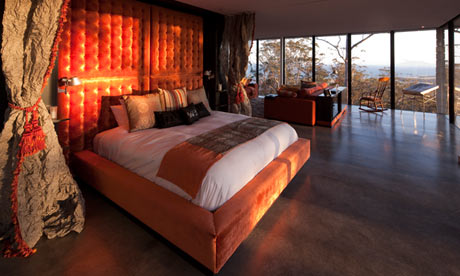
Move over boutique hotels. We would rather spend the night in someone's flat. Such is the demand for homestays, where you can bag a flat in Rome for as little as £50 a night, that companies such as Airbnb, 9flats.com and Wimdu, can barely add new pads to their sites fast enough.
Hip homestays are certainly in the ascendant. Airbnb expects an increase from last summer of 40,000 bookings a night. One friend, who booked weekends in Paris and Manhattan through it, says she could not have got near Le Marais any other way. The flat owner personally welcomed her and handed over his keys, with a list of great tips. Hanging out at his favourite cafe and pretending to be a Parisienne was all part of the fun.
When I stayed at a one-bedroom property from the OneFineStay site, it gave me a chance to experience City living (I was a stone's throw from the Bank of England). I spent the evening in a fantastic winebar and walked to my first meeting in the morning.
OneFineStay, which includes in its bookings bedlinen and toiletries from the White Company plus a staff member to meet you at the property – who hands over an iPhone loaded with local info – doesn't even market itself as cheap. A night in the flat I stayed in can cost more than £200, yet the British-based company, which launched in 2009, rapidly expanded into New York, and is likely to add LA and Paris later this year.
None of this could have happened without boutique hotels. When they arrived in the early 90s, we were swept up on a tide of "lobby living" (ambient reception areas where we could sit with our new laptops), walk-in showers (now known as wetrooms) and bedlinen with a threadcount.
We couldn't wait to reproduce it in our own homes. Egyptian cotton became de rigueur, even in M&S. Monsoon showerheads, previously the prerogative of those shopping (or rather, their interior designers) for bathrooms in Czech and Speake, began to appear piled up on pallets in Wickes. Once everyone could create boutique style at home, hotel rooms inevitably lost some of their cachet.
Now we would rather stay in a stranger's design-savvy Soho (or SoHo) flat. Not just because homestays are recession-chic, but because they fit the trend for localism. We don't just want to eat local, we want to get to know the neighbourhood and live like a local. In a hotel you are always removed from real life, but by temporarily "borrowing" a real person's apartment, you are stepping not just into their living room, but also, just briefly, into their life.

